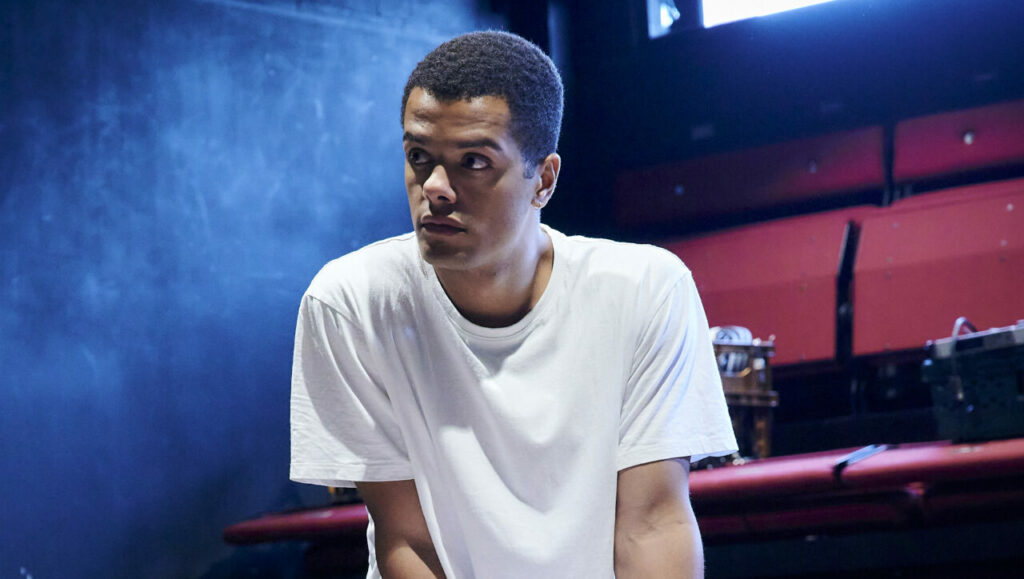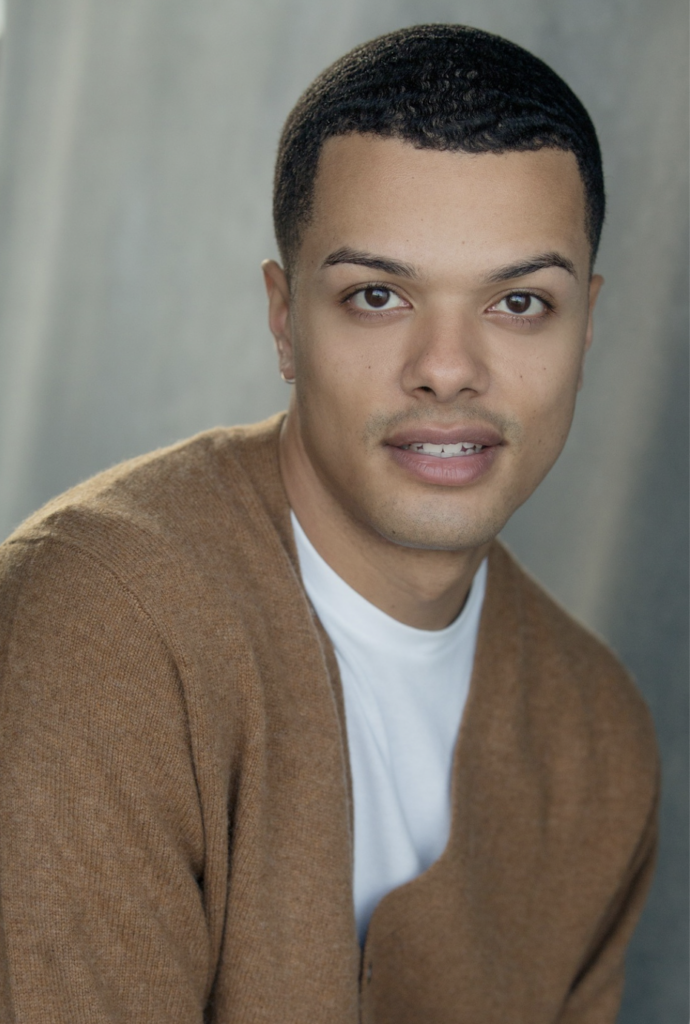‘Queer visibility in Black communities is no longer a mythic tale’
Actor Dylan Brady writes about themes of intersectionality on show in Daniel J Carver’s play REVEALED.

Growing up as a queer mixed-race kid from the Midlands (the bleak no-mans-land between the south and the north), it was hard to find a sense of identity.
After a short bout of bullying in year 7, I developed a way to tread the battlefield of British secondary school in the early 2010s.
I became a butterfly, hopping from group to group, changing my voice and body to blend in with each differing environment, choosing my words based on the company I was keeping, suppressing any semblance of original thought.
Sometimes I was a flamboyant and outlandish force of nature. Sometimes I’d try to be a moody and introspective fly on the wall. I was both camp and laddish, victim and bully.
I came out as gay at 13 and got my first girlfriend shortly after that. I was confused – and grappling for a sense of who I was.
I had seen queerness and Blackness lumped together on screen before, albeit lazily. I’d seen the POC gay best friend in the rom-com but there had scarcely been any attempt to fully interrogate what that experience was.
Fast forward to the triumph of Sex Education’s Eric Effiong in 2019, a gorgeous portrayal by Ncuti Gatwa, which challenged the stereotype of homophobic Black families and offered a different narrative, without ignoring the complexities of living both of these experiences simultaneously. But as we know, it is not always so easy.
I was lucky to come out to loving, accepting, and (it must be said) unsurprised parents. My experiences of racialised homophobia came from further afield, on the school bus and in the streets of my local area.

And it was tied to something else: my whiteness. I had always felt inadequately Black. Words like ‘coconut’ and ‘oreo’ flowed in the same streams as ‘batty boy’ and ‘chi chi man’. Because I spoke more like my white peers, because I was more feminine, I felt like I wasn’t Black enough, or man enough.
Yet I couldn’t escape the feeling of being ‘other’ amongst a sea of white faces. And though it was the girls who made me feel safest at school, I could never truly assimilate because I was a boy. I stuck out, wherever I was.
And that left me feeling insufficient, searching desperately for something to anchor.
In REVEALED I play Luther. I think ten years on, his experience would differ to mine. We’ve come a long way in how talk about the intersections of who we are, and queer visibility in Black communities is no longer a mythic tale from far far away.
A mixed-race 16-year-old at college today is likely to have fewer problems coming out if they need to ‘come out’ at all, save for a few problem encounters with peers who have inherited dregs of bigotry from conservative parents.
But REVEALED isn’t set in a college of Gen Z’s. It’s set in a family restaurant with three generations of Jamaican men, and their ancestors watching from the peeling restaurant walls.
The weight of expectation is crushing for Luther, and it’s molded him into a hyper-masculine and aggressively defensive ball of anxiety, forged in the image of his father, who he resents. I suspect a lot of young Black boys still live this experience.
Brutalised by the police and frequently murdered at the hands of a racist system, Black boys living the bleakly cyclical experience of their predecessors is something we know all too well. And that’s how Luther’s queer identity plugs into the complicated jigsaw of the play’s many pieces.
We’ve got this young man on the receiving end of this torrent of hatred from his father, who pages before spoke of the atrocities and prejudice that Black men have faced for hundreds of years. It’s this grotesque mirroring of generational trauma.
You’ve got the riots erupting outside the family restaurant, fuelled by petrol bombs and police shields, shards of history, and batons and blood. Then we find more bigotry in the throes of the family home, exposed by abusive words, hidden in looks spiked with hatred and shame, and even acts of violence.
It’s a difficult picture to look at, but one that’s incredibly important to see. REVEALED has attracted a really mixed audience.
Lots of people who don’t usually go to the theatre, many of them Black, are coming in to watch something they see themselves reflected in and sticking around to talk about it after.
We’ve had a tremendously positive reaction – standing ovations, people moved to tears, audiences wanting to engage with us.
But not everyone comes with the same perspective. I’ve experienced some audience members laughing and hollering while Luther receives a tirade of homophobic abuse from his father.
At first, I found that uncomfortable. Immediately, you feel there are people in the room who agree with this man saying these awful things. But it’s important that many different people are there – we’re not just ‘preaching to the choir’, and I’m glad they’re coming.
Because when forced to look at the duality between the war outside and the one happening within the home, they might see that hatred is a shapeshifting plague and examine the areas of their own lives which could be infected.
They might think about what they would do if it was their loved one baring their soul and coming out. And they might act differently.
REVEALED is at Bristol’s Tobacco Factory Theatres until Saturday, 8 October. Get tickets here.
